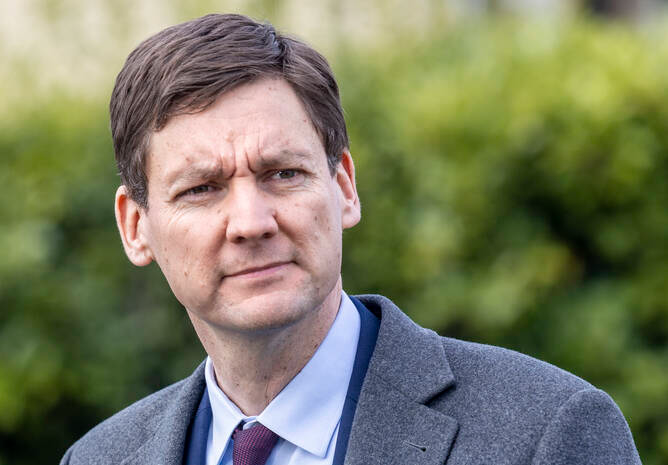Two political parties drew lines in the sand on short-term rental laws Tuesday in Victoria, as matters got personal.
B.C. Premier David Eby was compelled to explain his property purchasing history after BC United MLA Karin Kirkpatrick (West Vancouver-Capilano) called him a condo “flipper” while also introducing proposed amendments to short-term rental legislation — that Eby in turn called “Swiss cheese.”
In the legislature, Kirkpatrick first suggested newly proposed restrictions on the likes of Airbnb listings should carry exemptions for one additional investment property and provide for medical travel needs. Additionally, short-term rentals ought to be allowed for major events, such as the Grey Cup or FIFA World Cup in 2026.
Eby responded by saying the Opposition was trying to turn the legislation into “Swiss cheese” whereby a truck could drive through such loopholes.
Kirkpatrick also called Eby a hypocrite for selling his condo in 2019, which advertised “unrestricted rentals.”
Kirkpatrick said Eby “personally profited from selling his condo as an Airbnb opportunity.”
The listing at the time does not mention Airbnb nor short-term rentals, but Kirkpatrick said the building was accommodating such rentals. She did not suggest Eby rented his place as a short-term rental.
BC United press secretary Andrew Reeve provided the property documents to Glacier Media. They indicate Eby bought the one-bedroom condo on Johnson Street in August 2013 for $216,500. Eby sold the property in January 2019 for $365,000 — a $148,500 profit.
Eby explained that he bought the condo as he worked in Victoria; otherwise, he was renting a place in Vancouver, as his wife attended medical school; the two have gone on to have two children. He said, in the legislature, that the sale proceeds helped pay for tuition costs.
After Eby sold the condo, he rented in Vancouver until March 2022, when the couple bought a $2.2-million townhome.
A Glacier Media analysis of disclosures from May 2022 showed 93 per cent of MLAs own a home, outpacing the provincial home-ownership average of 68 per cent, and more than half — 41 of them — own a second property, far exceeding the provincial secondary homeowner rate of 15 per cent cited by Statistics Canada.
Records show Eby has never owned more than one property at a time.
When questioned about the use of the term “flip,” considering Eby made the condo his secondary home for six years, Reeve defended the party’s terminology, as he said Eby profited from the sale of a “non-primary residence.”
Reeve said Eby’s now-former building had a dedicated short-term rental management service and suggested the Airbnb opportunity increased its value.
“When selling his property, he personally benefited from the building’s nonconforming use exemption allowing unrestricted rentals driving up the value of his property due to the added-value of Airbnb potential which was part of the marketing of his sale and all units in 760 Johnson,” stated Reeve.
The Opposition has criticized Eby in the past for his condo sale, suggesting he sold it to avoid the speculation and vacancy tax (which is the stated purpose of the tax — to move units into primary residences).
Eby sold the condo at a time when land values were ticking up. And, had Eby held on to the Victoria condo until today it would sell for about $475,000, based on current listings of one-bedroom condos that do, now, explicitly advertise the building as a “vacation haven.”
Eby introduced the short-term rental laws this month in order to free up units for long-term residents, as one means to address housing affordability. The law will restrict short-term rentals to principle residences save for secondary suites and laneway homes in most municipalities with over 10,000 residents.
While the law has been criticized by the BC United, some say it does not go far enough in addressing the matter.


